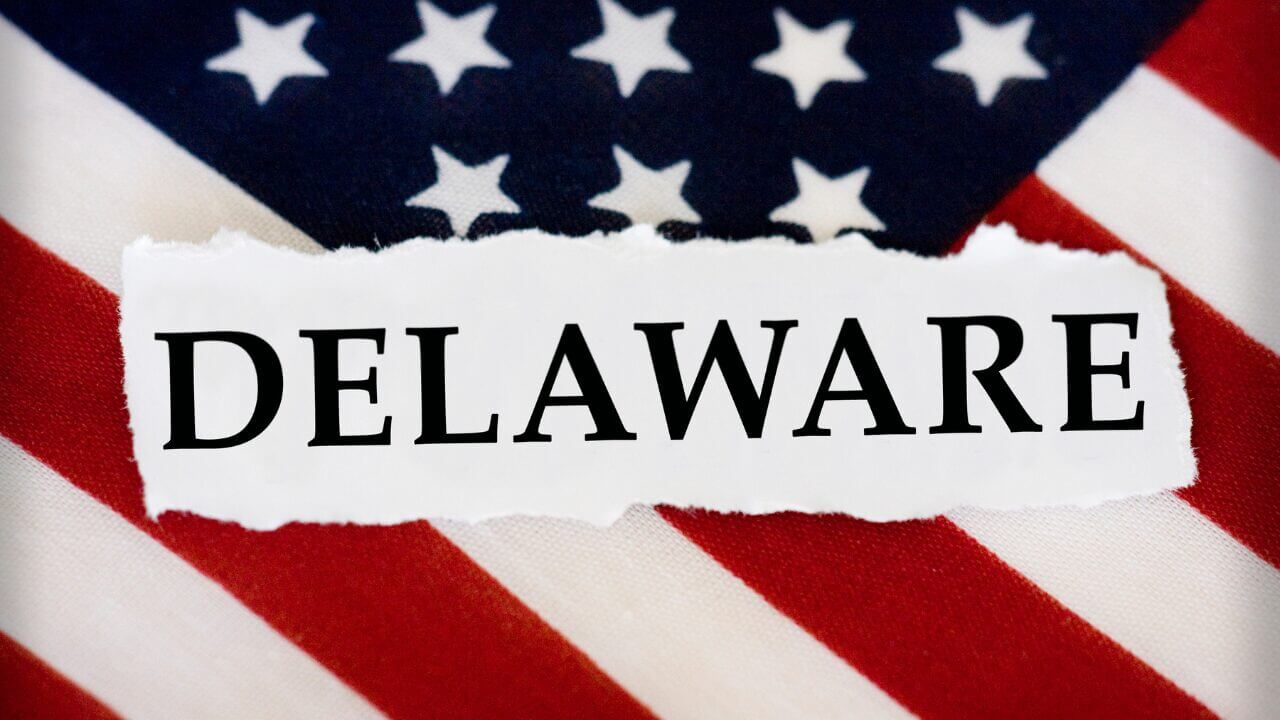Language:
How to Convert Your Existing LLC to a Delaware LLC

Converting your existing LLC into a Delaware LLC could be the key to accessing a wealth of benefits, from favorable tax structures to robust legal protections.
Known as the “First State” for business, Delaware has become the go-to destination for entrepreneurs seeking greater flexibility and credibility in today’s competitive market.
While converting an existing LLC to a Delaware LLC can seem like a daunting task, it doesn’t have to be with doola’s Formation services.
We offer comprehensive solutions that make the conversion process smooth and hassle-free for our clients.
But how do you make this transition seamless without interrupting your operations?
In this comprehensive guide, we’ll walk you through every step of converting your LLC while ensuring that you take full advantage of Delaware’s offerings.
Let’s dive in and discover how transforming your business can lead to exciting growth opportunities!
Why Convert to a Delaware LLC Formation?
Delaware has long been the top choice for business formation in the United States, which is why it is referred to as the “First State for Business.” Its highly favorable business laws and regulations offer unparalleled benefits for business owners.
Due to the unmatched benefits of forming a Delaware LLC, it is an attractive option for both small startups and established companies looking to expand their operations.
Easy Formation Process
While each state has its own set of rules and regulations for forming an LLC, Delaware has some of the most streamlined processes.
For instance, there is no requirement for minimum capitalization or number of members in a Delaware LLC.
This allows businesses to structure their company in a way that best suits their needs without being hindered by strict regulations.
Favorable Business Conditions
The state offers a modern and efficient legal system and specialized courts, such as the Court of Chancery, which handles business disputes and corporate law cases, thus, allowing for quicker resolution times compared to other states.
Attractive Tax Benefits

Delaware does not impose state-level income taxes on businesses without a physical presence in the state, resulting in significant cost savings for entrepreneurs.
Additionally, there is no sales tax on goods or services sold by a Delaware LLC outside of the state.
Privacy Protection
Unlike some other states, where personal information such as names and addresses must be disclosed when registering an LLC, Delaware only requires minimal information about its members/shareholders — typically just their names — therefore ensuring confidentiality.
Easy Access to Capital
In addition to these benefits, converting to a Delaware LLC can also greatly enhance investor attraction.
Many investors prefer to invest in companies based in Delaware due to its reputable, business-friendly environment, solid legal protections, and well-established courts.
Also worth noting is that almost every major U.S. bank operates branches within the state’s borders; this enables entrepreneurs operating out-of-state to access capital more easily than if registered elsewhere.
What Is an LLC Conversion?
An LLC conversion is the process of changing the state of registration for an existing limited liability company (LLC).
It involves converting the business from its current state to a different one, with Delaware being a popular choice for its favorable tax and legal environment.
To understand what an LLC conversion entails, it’s essential to learn what an LLC is. An LLC is a type of business structure that combines the benefits of a corporation (limited liability protection) and a partnership (pass-through taxation).
It also provides owners/ members with flexibility in managing and operating the company while protecting their personal assets against business liabilities.
However, some states offer even more benefits, which may drive the decision to transfer your LLC to another state.
These could include tax considerations, a desire for better legal protections, or simply a desire to take advantage of more favorable business laws in another state.
Whatever the reason, such a conversion has both legal and operational implications. This process is known as an LLC conversion from one state to another.
Simply put, an LLC conversion from one state to another involves changing the jurisdiction under which your company was formed.
This means that all legal rights and obligations of your previous LLC will transfer over to the new entity formed in the new state.
It should also be noted that this is not a dissolution or termination of the old LLC — instead, it is considered a continuation of its existence in the new jurisdiction.
What Are the Legal and Operational Implications of LLC Conversion?

Converting an LLC requires adhering to specific steps and regulations set by both states.
You must fulfil certain legal and operational requirements to ensure a smooth and legally compliant conversion process.
1. Check State Laws and Requirements
The first step in converting your LLC is to thoroughly research the laws and requirements of both the current state and the new state.
Each state has its own set of regulations, so it is crucial to understand them before proceeding with the conversion process.
2. Obtain Necessary Permits and Licenses
Depending on the industry or type of business your LLC operates in, you may need specific permits or licenses from the new state before you can conduct business there.
Make sure to obtain all necessary permits and licenses before starting the conversion process.
3. Amend Articles of Organization
In most cases, you will need to amend your articles of organization to change the location of your LLC.
This typically involves filing paperwork with both states’ Secretary of State offices and paying any required fees.
4. Transfer Registered Agent
Every LLC must have a registered agent in its registered state to accept legal documents on its behalf.
When moving an LLC, it is essential to update this information with both states’ Secretary of State offices and inform your new registered agent about their role.
5. Comply with Tax Obligations
You may need to obtain a new EIN for tax purposes, inform the IRS about the change of address, and file a final tax return in the old state.
Also, you should make sure that all required taxes are paid up-to-date before initiating the conversion process.
6. Notify Creditors and Business Partners
As part of your due diligence during this process, make sure you notify any existing creditors or business partners about the move well beforehand so they are aware of any changes or updates that may affect them.
7. Update Operating Agreement
When moving to a new state, this document may need to be updated to reflect any changes in ownership or management structure.
Additionally, the new state may have specific requirements, so ensure that your revised Operating Agreement complies with those regulations.
8. Obtain Expert Assistance
Converting an LLC from one state to another can be a complex process, so it is advisable to seek assistance from an expert who specializes in business formation.
They can guide you on complying with all legal requirements and ensure that the conversion process goes smoothly.
How to Convert Your Existing LLC to a Delaware LLC
Converting your existing LLC to a Delaware LLC is a strategic move that can bring numerous benefits to your business.
If you’re considering making the switch, you’ve come to the right place.
In this step-by-step guide, we’ll explain how to convert your LLC to a Delaware LLC:
Step 1: Determine if Conversion is the Right Move for Your Business
Before diving into the conversion process, it’s essential to consider whether converting to a Delaware LLC is the best decision for your company.
Some states have specific requirements or restrictions, so you must ensure that you can legally and easily convert your LLC to Delaware.
Next, check Delaware’s laws and regulations for LLC conversion. Make sure that there are no specific requirements or restrictions that could affect your conversion process.
Talk to a business formation expert to discuss the approach.
Step 2: Understand the Differences Between Your Current State and Delaware
Each state has its own set of rules and regulations regarding business entities, including LLCs.
Before converting, take some time to research and understand the differences between your current state and Delaware’s requirements for operating an LLC.
Step 3: Choose a Registered Agent
A registered agent is required for all businesses operating in Delaware. This agent serves as a point of contact for legal notices and documents on behalf of your company.
You must appoint any resident or entity authorized by law to do business in Delaware as your Registered Agent.
Step 4: File a Certificate of Conversion
To convert your existing LLC into a Delaware LLC, you’ll need to file a certificate of conversion with both states’ governing authorities.
Some states may require additional documentation, such as an Operating Agreement or Certificate of Good Standing from your existing state.
Step 5: Obtain Necessary Permits and Licenses
Your converted Delaware LLC will still need to comply with all applicable federal licenses and permits required for operations.
Research what licenses or permits are necessary based on your industry before completing this step.
Step 6: Notify Stakeholders and the IRS, and Update Your Business Information
Be sure to inform your stakeholders, including clients, vendors, and partners, of the conversion.
You’ll also need to update all legal documents (e.g., contracts, agreements, tax returns, etc.) with your new Delaware LLC name and Registered Agent information.
Congratulations! You have now successfully converted your existing LLC into a Delaware LLC.
While this process may seem daunting at first, consulting with a formation expert from doola can ensure a smooth transition throughout the process.
Mistakes to Avoid When Converting to a Delaware LLC Formation

Converting your existing LLC to a Delaware LLC can have many benefits, but it’s important to proceed with caution and avoid some common mistakes.
Here are some key things to keep in mind when making the switch.
1. Failing to Dissolve Your Old LLC
Before converting to a Delaware LLC, it is crucial that you properly dissolve your old LLC in its state of formation.
This means following all necessary legal procedures and filing the appropriate paperwork with the state.
2. Not Checking Name Availability
In order to form a Delaware LLC, you will need to choose a unique name for your company.
But just because the name may be available in your current state doesn’t mean it will also be available in Delaware.
It’s essential to conduct thorough research and check the availability of your desired business name before beginning the conversion process. This can save you time and money down the line if you need to rebrand due to an unavailable name.
3. Neglecting Tax Implications
Converting your existing LLC to a Delaware LLC can have tax implications depending on where your business operates and generates income from.
For example, if you have employees or own property in another state, you may still be subject to their taxes even after converting.
4. Coordinating Operating Agreements
When converting an existing LLC into a Delaware LLC, all members must agree on how this new entity will be structured before proceeding with the conversion process.
5. Not Understanding Franchise Taxes
One major difference between traditional corporations and LLCs is that most states do not impose franchise taxes on limited liability companies; however, this is not the case in Delaware.
As a Delaware LLC, you will be required to pay an annual franchise tax based on your company’s assets and number of authorized shares.
By being mindful of these common hurdles when converting to a Delaware LLC, you can ensure a smooth transition and reap the benefits of operating in this business-friendly state.
doola Can Help Convert Your LLC to a Delaware LLC

Converting your existing LLC to a Delaware LLC can seem daunting and overwhelming, but our team at doola is here to guide you every step of the way.
Our team will fulfill all requirements, handle all administrative tasks for you, and ensure all necessary paperwork is filled out correctly and submitted on time.
We will update and file the Articles of Organization that comply with the state’s regulations, provide Registered Agent services, and draft an operating agreement for your new Delaware LLC.
After completing these initial steps, we will assist you with obtaining a federal tax ID number (EIN) from the IRS for your newly converted company.
We understand that this can be complicated and time-consuming; therefore, our team takes extra care to ensure that all transfers are done accurately and efficiently.
Our experienced team members have successfully guided numerous clients through this transition, and we are confident in our ability to help your business reap the benefits of becoming a Delaware LLC.
Book a free consultation with us today to learn more about how we can assist you in this process.



